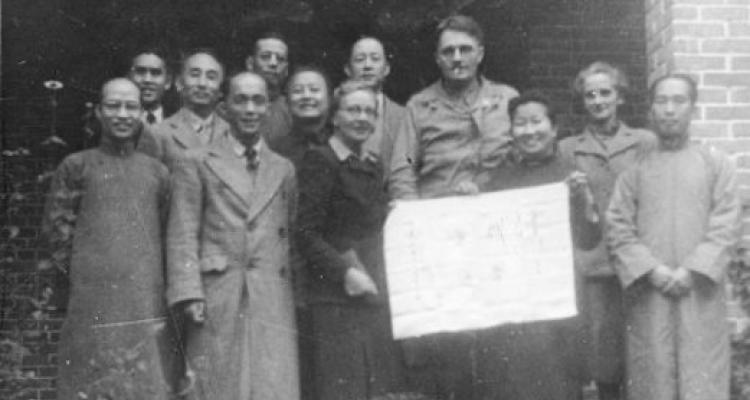Image: Dorothy Needham and Joseph Needham holding up a silk banner embroidered with the words ‘The everlasting spring of scientific knowledge’
Join Dr Gordon Barrett as he explores Dorothy Needham's evolving relationship with China during his pre-recorded talk entitled Dorothy Needham, China, and the "Needham Project".
One of the first women to be elected as a Fellow of the Royal Society, Dorothy Needham has been best known for her research career specialising in muscle biochemistry. She was also passionately political and a keen internationalist, characteristics she shared with her husband, Joseph, but for which he has been most readily and publicly associated, especially when it comes to science in China. Yet, not only did Dr Needham spent the final years of the Second World War based in Chongqing, ‘Free China’s’ wartime capital, serving as co-director of the Sino-British Science Cooperation Office and promoting international scientific cooperation, she also later returned to China for visits in 1964 and 1972. Focusing on material from collections held by the Needham Research Institute and Girton College, Cambridge, this talk will explore Dorothy Needham’s evolving relationship with China as well as consider her own interests in and perspectives on science in China.
Dr Gordon Barrett is currently serving as Departmental Lecturer in Modern Chinese History and Politics at the University of Oxford. His research focuses on the politics of science and medicine in the twentieth century, with particular interest in Sino-British scientific relations, and has been published in the Journal of Cold War History, Modern Asian Studies, and most recently in Sachse and Kraft (eds.), Science, Peace and Communism: The Pugwash Conferences on Science and World Affairs in the Early Cold War Decades (Brill, 2020).

